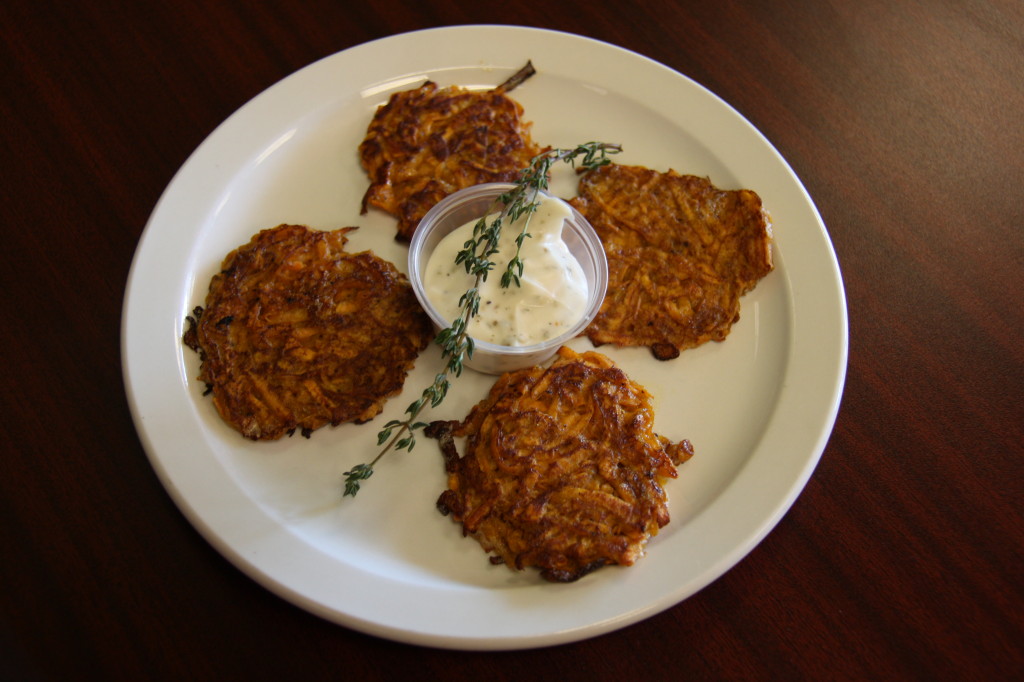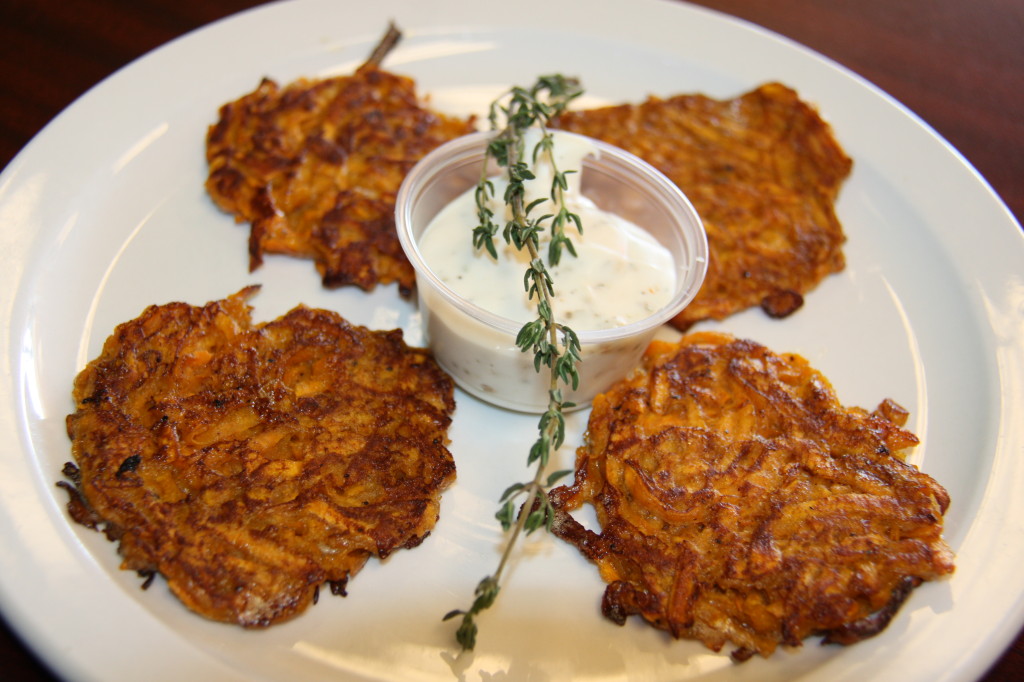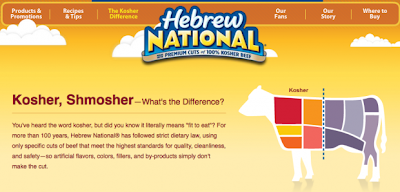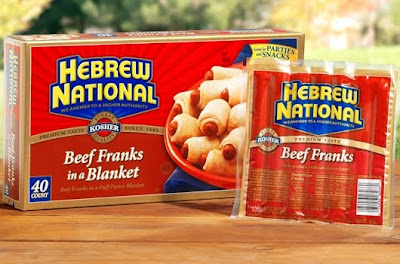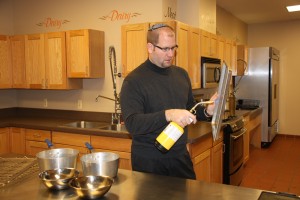For Thursday: Light menorah, pass turkey
Mark Hicks | The Detroit News
This Thanksgiving marks a first at Margo Grossman’s home: Menorah candles will burn while latkes as well as blue-and-white Star of David-shaped sugar cookies accompany heaping portions of turkey, mashed potatoes, pumpkin pie and other dishes.
Thursday is the national holiday honoring the Pilgrims’ harvest with help from the Wampanoag American Indians in the 1600s. It’s also the first full day of Hanukkah, the eight-day Jewish holiday that commemorates emancipation from religious persecution in the second century B.C.
For many Jews across Metro Detroit, the rare convergence is a chance to combine celebrations of each holiday — shared goods, family gatherings and more to show an appreciation for blessings — into a joyful period some have christened “Thanksgivukkah.”
“It’s a cool, once-in-a-lifetime thing,” said Grossman, a transition consultant from Franklin. “I’m definitely welcoming it. Doing the holidays together is fun and different. … It’ll be interesting.”
By some calculations, this is the first time since 1888 Thanksgiving and the start of Hanukkah have fallen on the same day. And, according to a Chabad.org article, the two holidays would next coincide in 2070.
To traditionalists and grateful diners alike, the unusual occurrence this year — Hanukkah begins at sundown today — links national history with spiritual heritage.
“It really highlights the fact that the Jewish-American community is American,” said Rabbi Steven Rubenstein of Congregation Beth Ahm in West Bloomfield Township.
To some, the holidays share similarities.
Having fled Europe seeking economic viability and freedom to practice their religion, the pilgrims faced enormous challenges — including the threat of death from disease and starvation — adapting to a tough new terrain, said the Rev. John Staudenmaier, a history professor at the University of Detroit Mercy.
“That’s the context that originally framed the Thanksgiving feast and it is deeply important for the people who ate that feast,” he said. “They knew they couldn’t have done it on their own. … Thanksgiving is a celebration of survival but also of bravery by people desperate for a fresh start.”
Hanukkah — also known as the “Festival of Lights” — marks the victory of the Maccabees and their allies over Syrian forces, allowing them to recapture the desecrated Jewish Temple in Jerusalem.
It also recalls the belief that a single day’s supply of lamp oil miraculously lasted eight full days during the temple’s rededication.
While non-Jews have associated Hanukkah, which often has fallen in December, with Christmas, this year the proximity to Thanksgiving and the holidays’ related themes seem more sensible.
“Thanksgiving fits a lot better with Hanukkah,” said Debra Darvick, a Jewish author from Birmingham. “It resonates more.”
With the overlapping observances in mind, some are creatively mixing traditions.
Rabbi Jason Miller of Kosher Michigan, a certification agency, and Patrick Coleman, owner of the Southern Nosh restaurant in Southfield that serves kosher vegetarian items and soul food, created a sweet potato latke.
A traditional Hanukkah item, latkes typically are cooked with potatoes and oil. But the Southern Nosh version uses a sweet potato — a popular ingredient in African-American and soul food kitchens, Coleman said.
Since adding them to the menu this month, cooks have averaged about a dozen orders a day, he said.
“Folks are really enjoying them. They think they’re very tasty. … They’re literally going out of the restaurant like hotcakes — no pun intended.”
The day after lighting the first candle in their menorah for Hanukkah, Lisa Soble Siegmann of Bloomfield Hills and her family plan to visit a relative’s home in Ohio for turkey, latkes, cranberry sauce, challah stuffing, pecan and chocolate gelt pie; games with dreidels, the four-sided spinning tops; and songs extolling both holidays.
“It’s going to be a night of fun and family and being together,” she said.
For Leah Gawel’s family in Novi, the convergence is more of a curiosity.
After a feast complete with latkes Thursday, they will light the menorah and let their children open gifts. Holiday decorations — colored lights, a banner — adorn their home.
“It just makes it interesting, makes it a little fun,” Gawel said. “It will be something the kids will remember.”
Partly to accommodate those celebrating Thanksgiving, organizers of the third annual “Menorah in the D” plan to hold the public lighting of the 24-foot-tall steel/glass menorah and the related community party in Detroit’s Campus Martius next week, said Rabbi Kasriel Shemtov of the Shul-Chabad Lubavitch in West Bloomfield Township. The ceremony usually occurs earlier during Hanukkah.
Some of the coordinators also are expected to display a dreidel-shaped mobile and distribute tin menorahs along with chocolate coins during America’s Thanksgiving Parade on Thursday, said Ben Rosenzweig, a member of the Shul.
That underscores a central theme of Hanukkah that dovetails with Thanksgiving, he said. “The idea of Hanukkah is good defeating evil and the idea that everybody has the freedom of religion to practice what connects them spiritually.”
mhicks@detroitnews.com
(313) 222-2117
From The Detroit News: http://www.detroitnews.com/article/20131127/METRO08/311270030#ixzz2mun1VBa1


